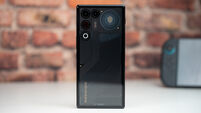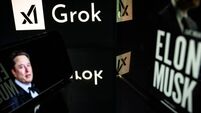Baltimore shares lose another 10%
Having announced it has sold its last remaining asset yesterday, its core PKI security business for around €7m, Baltimore executives will now decide what they can now do with the company, which is essentially a cash shell.
The value of the company is a far cry from the dotcom days when Baltimore was a member of the FTSE100 index of largest companies in Britain having been bought in the early 1990s by former chief executive Fran Rooney and a group of investors for a few hundred thousand euro.











